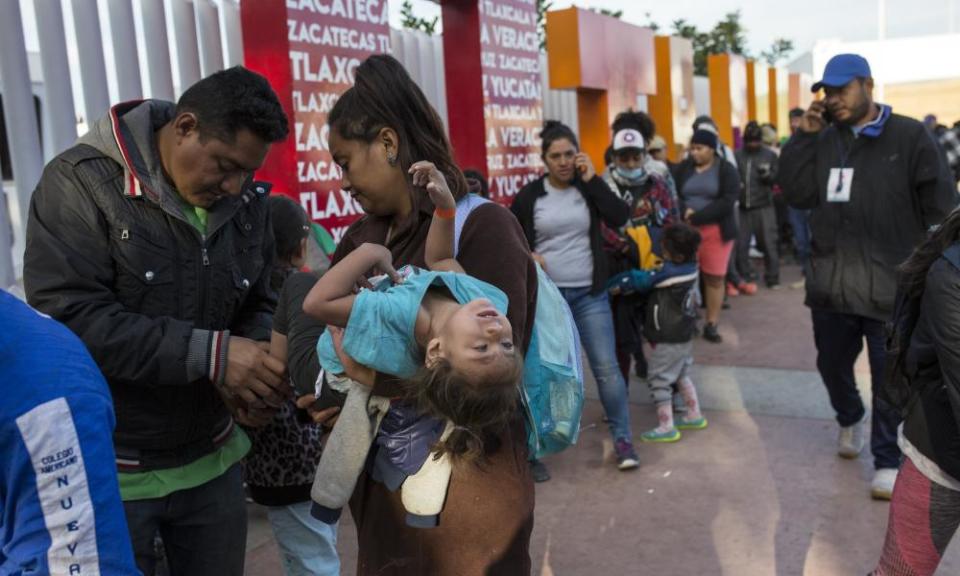Trump plan to curtail asylum claims violates US law, court hears
New rule bars claims except at official ports of entry
Law says any person present in US entitled to claim asylum

Donald Trump’s efforts to drastically limit the right to asylum in the US came under legal challenge in California as lawyers for migrant rights groups argued that the president had overridden immigration laws and placed the lives of migrant children in jeopardy.
The Trump administration issued a new rule on 9 November that effectively banned migrants from claiming asylum if they crossed the US border outside of a designated port of entry. The rule, issued by presidential decree, penalises thousands of migrants, many of whom are mothers and children fleeing violence in Central America, who cross the border illegally.
Lawyers for the American Civil Liberties Union (ACLU) argued before Judge Jon Tigar on Monday that the administration’s new rule violates the Immigration and Nationality Act, which states that any person present in the US can claim asylum irrespective of how they entered the country. The applicants are requesting the judge issue a temporary restraining order on the rule.
“The administration is trying to override what Congress has done,” argued Lee Gelerent, deputy director of the ACLU’s immigration rights project. He added: “Entering between a port of entry has no bearing on what danger you may be in.”
Gelerent argued the new rules would lead to a “real humanitarian crisis” and said that unaccompanied minors currently waiting to enter the US at ports of entry were already being turned away by authorities.
“That’s why we believe there’s a critical need,” Gelerent said. “Those kids are in critical danger.”
Trump issued the proclamation shortly after the midterm elections during which the president ratched up anti-immigrant rhetoric on the campaign trail and invoked conspiracy theories about a migrant caravan thousands of miles from the US.
The radical restrictions are part of the administration’s ongoing efforts to curtail immigration into the US, which led to the family separation crisis earlier in the year and the administration’s policy of banning migrants from several Muslim-majority countries. But the policy is perhaps the most legally precarious given the wording of the Immigration and National Security Act.
During a number of exchanges between Judge Tigar and the justice department attorney Scott Stewart, the administration was asked to explain how the new rules did not override current legislation.
In a hypothetical question, Judge Tigar asked: “Let’s say we said you can come to the hearing at the federal court in any vehicle. But then we have a rule if you came here on a bicycle, you’re not getting in?
“How does that not render the expression of congressional intent null?”
Stewart argued that the government was under no “mandatory burden” to allow asylum to any one individual and suggested the new policy would still allow people to make claims if they crossed into the US legally.
But pressed for assurances that meritorious cases would not slip through the net, Stewart would not be drawn.
“Does the government contend … that no claims for relief that were granted in the past, will now be denied?” Judge Tigar asked.
“I can’t predict what will happen,” Stewart responded.
The court adjourned on Monday morning after less than two hours of arguments. A ruling is expected soon.

